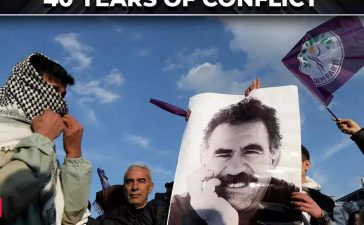
British bookmakers allow gambling on politics. The timing of an election is a popular bet. But placing bets with insider knowledge is a crime. The commission has not named anyone in its investigation yet.
Now, imagine if Dream 11, a fantasy cricket league in India, were setting rules before the general election on whether Narendra Modi’s aides could bet on his rise or fall. Nobody knows how the public thinks – as we saw in our recent exit polls. We’ve all been bad at predicting the future, or have had a bad day at work, but none of us had to weep on primetime as one pollster had to after the actual results came out.
Britons have a different situation. Being a pessimistic people, they are overconfident that the Tories, having run the country for 15 years (many say to the ground) – and having changed five PMs in that time, including one’s tenure outlasted by a lettuce – are facing inevitable defeat. So, why not bet on that happening? If the ethics committee didn’t exist, Sunak, a wily financier, could probably bet against himself. If he won, it’ll probably shock him more than the country. Not to mention, leaving quite a few of his colleagues a few pounds poorer.
In many ways, their election is the opposite of our election. Here in India, everyone bet (whether by putting down cash or not) that it’d go a certain way. God had other plans. Nobody would have been stupid enough to bet against Modi. And nobody clever enough to think they could have made a few lakhs if they had. If they had these dark thoughts, they’d be in private, hush-hush. Once the unthinkable became fact — barely 260, instead of the 400+ seats — we carried on, sheepishly. Here in Britain, they’re betting the house that Sunak is gone. As in betting the house with a receipt to prove it.
However, through all of this, what is to be admired is that I, a foreigner, a visiting comedian, have the freedom to make these jokes without being deported. Or jailed. Or lynched.
The openness with which the public mistreats their political class in Britain is an art. Senior politicians visiting constituencies are often met with, ‘Get out,’ or far worse abuse. The media treats politicians like dirt. Ex-PM Boris Johnson was once asked, ‘You’ve lost it, haven’t you?’ The stuff the British public directly asks their MPs would be unthinkable in India.
On Question Time, a popular BBC TV programme, a citizen asked an MP, ‘Are you just a stupid liar, or are you a petty stooge for the Far Right?’ The parliamentarian didn’t jump out of his seat to rush up and smack the questioner. He composed himself and flubbed an answer in some half-measure to defend himself.
This level of informality would be unthinkable to us. It could explain why Indian MPs roam with a phalanx of sidekicks and bodyguards, speak only to thousands of people at once from a dais miles away from the public, and then immediately jump into an Innova or helicopter to avoid any single individual with an opinion.
In many ways, however broken the British election may be, this reverse treatment of the political class as actual servants of the people – as opposed to how we treat them as VIP messengers of god – makes democracy win. I’d bet on it.










